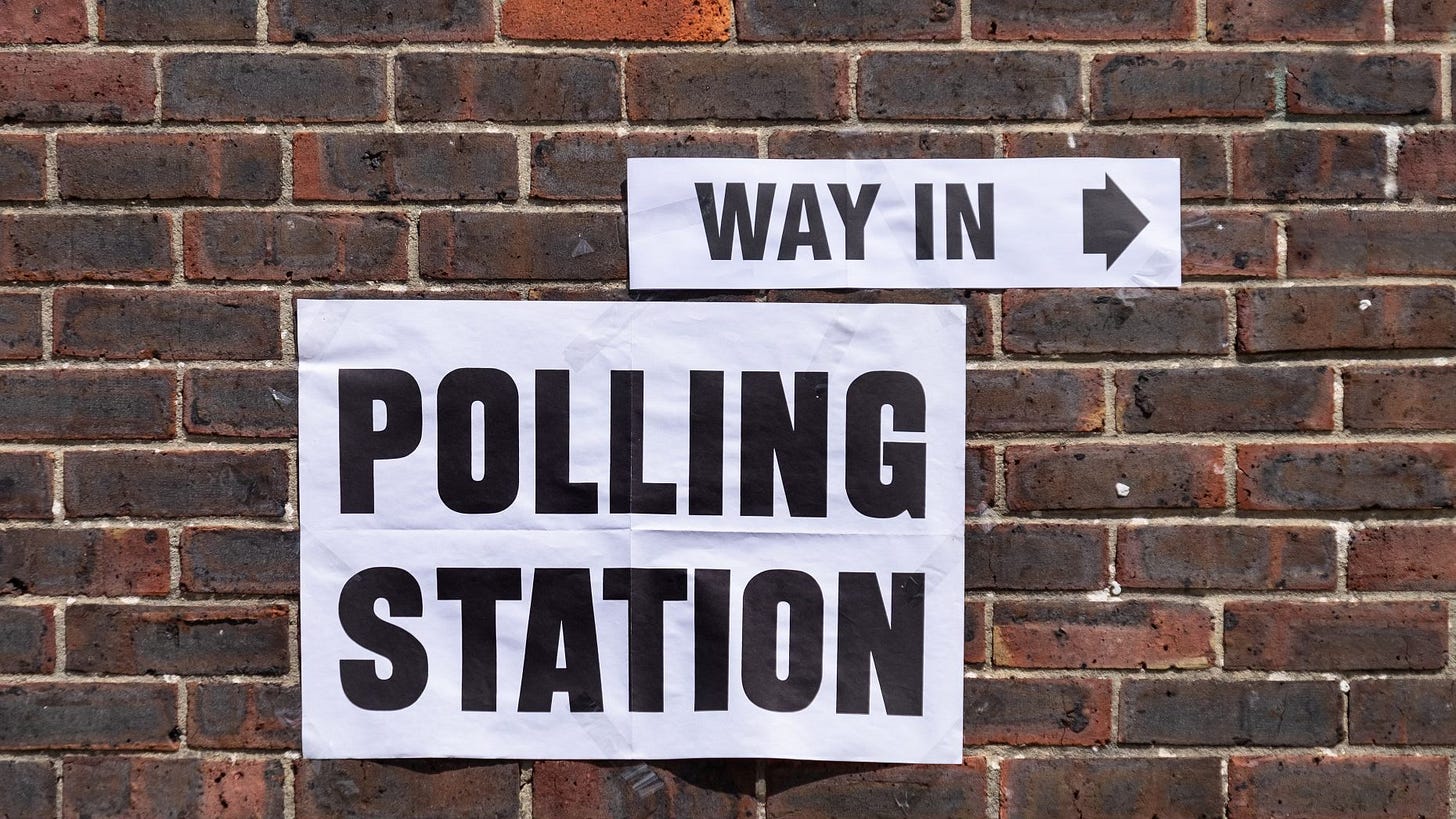Can We Blame It On Non-Voters? Probably Not
This is not the article I intended to write. My intention was to write a short, strong and scintillating argument for why we need to vote, and why we should reprimand those who do not vote.
I wanted to show you that if it hadn't been for all those, often lazy, non-voters, we would not have ended up with Trump, Brexit, Erdogan, Bolsonaro or Orban.
I envisioned you, reading and nodding, while also learning a thing or two.
After some research all that went down the tubes.
Let’s look at three of my cocky “we-all-know-that” assumptions. And how they ended up in the bin or the "not-so-sure-anymore" tray.
My 1st cocky assumption: “Non-voters determine elections.”
Wrong.
Non-voters determine the outcome of elections much less than we think.
At least according to research from the Netherlands, Switzerland and Ireland.
The Swiss–Irish article presented a compilation of research on elections from around the world and concluded that
“…turnout does not matter a great deal, no matter what method, dataset or period of time the authors [other researchers] apply. The various contributions each demonstrate that overall effects are minimal.”
That article is from 2006 and does not take into account the last presidential elections in the U.S. But before that, only 2 elections would have ended differently with a 100 % voter turn-out.
“Of the 13 presidential elections between 1952 and 2000 in only two—those of 1980 and 2000—was the lead of the winning party sufficiently narrow that a different final outcome would have been likely.”
And the trend is the same all over the world no matter the voting system. Low or high voter turnout does not affect election outcomes much. It seems as if those who vote are representative of the population.
Or as the Dutch researcher words it:
“This is exactly why low turnout appears not to matter much: …those who vote fairly well represent the electorate as a whole.”
My 2nd cocky assumption: “It’s the working class that doesn’t vote.”
Almost wrong.
Working-class people are more inclined not to vote compared to other social classes. But the difference is small. The Dutch article sums it up like this:
“If the overall turnout were to drop from 90 per cent to 10 per cent, the proportion of working class voters at the polls would fall by only 3 percentage points. These findings thus provide no support for the hypothesis that those who are economically worse off will be poorly represented when turnout is low.”
And, yes, higher turnout favours left-wing parties. However, not enough to have a distinct impact on election results, according to the two researchers from Switzerland and Ireland.
“…sometimes the left would benefit from higher turnout, sometimes other parties.”
My 3rd cocky assumption: “People should always vote.”
Not wrong, but perhaps I should not be so sure about “always.”
What if it is the most ignorant among us who don’t vote? Wouldn’t that be a good thing?
The was what the Dutch researcher formed his hypothesis around.
“If voters base their choice on other considerations say, the blue eyes or nice bum of a party leader, … then not voting is a blessing in disguise. “
But the researcher’s hypothesis did not hold up. Non-voters seem to have fairly the same clue about politics as voters have.
However, the Dutch research was based merely on the European Parliament election in 1999. Thus, the researcher thinks it would be wise to have a closer look at this issue. And, as stated in the Swiss-Irish article, much non-voting around the world is due to indifference and ignorance.
Hence, based on these two research articles, it is hard to conclude whether it is the most ignorant who don’t vote, or if non-voters know as much about politics as voters do— which does not say much.
In other words, we cannot be sure whether the “blue-eyes-and-nice-bum” people are overrepresented among non-voters or not. You may find them in equal measure among voters. Justin Trudeau, the ex-prime minister of Canada probably attracted some of them.
Still, I believe people should vote. But, I am no longer as cocksure as I was before reading these articles that everyone should always vote. I will swallow another pinch of humbleness, which will do me good.
And now we have finished the review of my three cocky assumptions. What have we come up with?
Summary
1. Low voter turnout has little impact on election results.
2. Working-class people vote less than others, but not in a significant measure.
3. Non-voters may or may not be more ignorant about politics than voters are.
I ended up with one wrong, one almost wrong and one not-so-sure-anymore.
Can I assume that your results looked much the same?
But despite my wounded ego—and yours, too? 😊 —is not voting still a problem?
Is not voting still a problem?
Since non-voters have little impact on election results, should we brush not voting off as a mere nuisance?
No. Even if it is the most ignorant that don’t vote, the question arises:
Should we leave it with that? Is it acceptable that people are so clueless that it is better they don’t vote?
And even if a non-voter knows as much about politics as the average voter, is it okay that they don’t drag their feet to the nearest polling station?
Should we leave Mario and Marion to their sofas, their baking competitions, and their cat videos?
No. Because not voting is part of a bigger problem. That of disclaiming responsibility.
And responsibility, my dear friends, is what I am going to talk to you about in my next post.
Thanks for reading!



